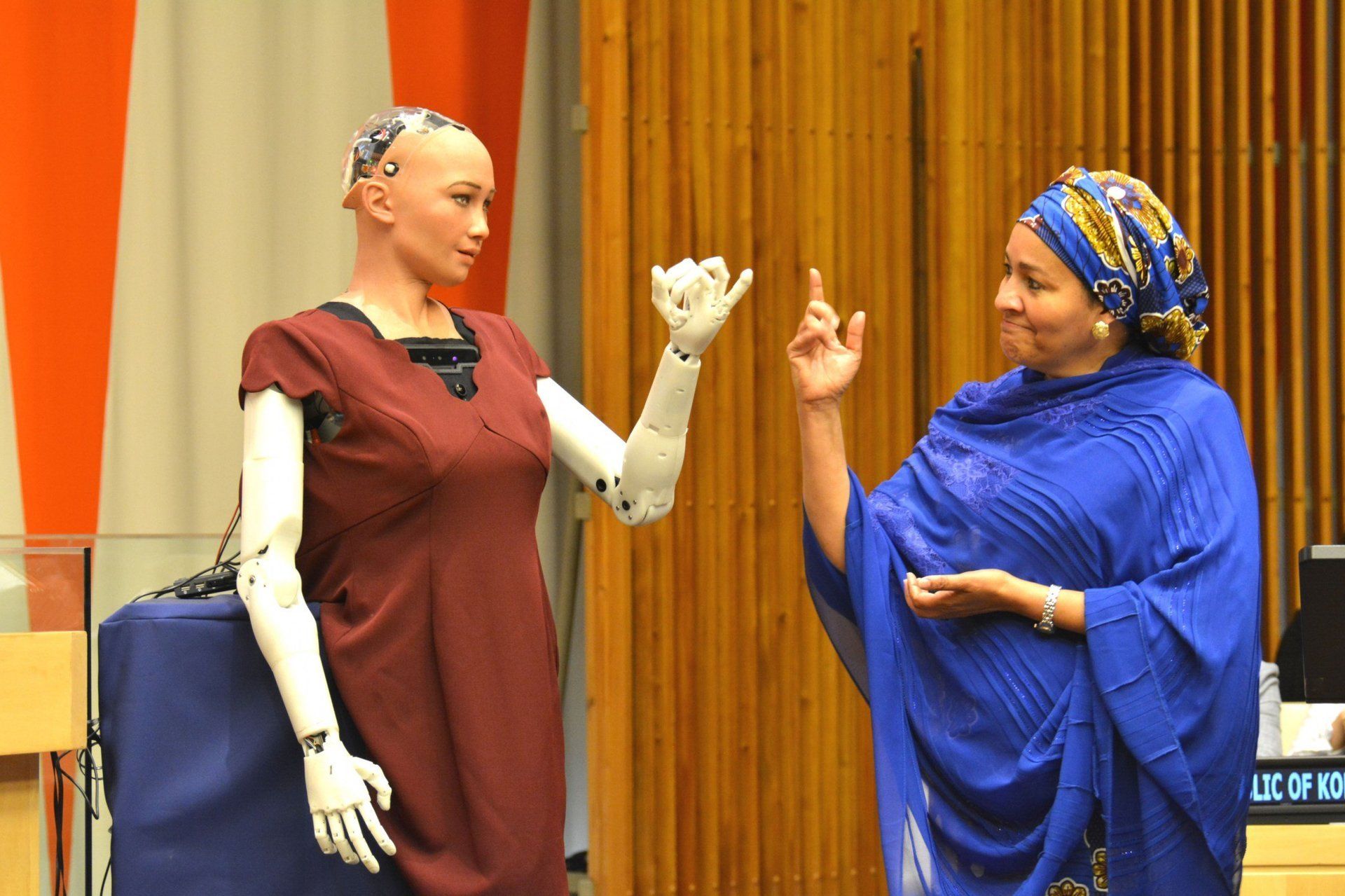Humanoid robot joins UN meeting on artificial intelligence
In a panel at ‘The future of everything – sustainable development in the age of rapid technological change,’ the United Nations delved into the potential of artificial intelligence (AI) to accelerate progress on global development goals, while also addressing the complex challenges it poses. These challenges encompass ethical questions, human rights issues, and security risks. The event underscored the uneven distribution of technological progress and emphasized the necessity of ensuring that AI benefits all of humanity. One of the notable aspects of the event was the participation of Sophia, a humanoid robot as one of the panelists. Sophia's presence highlighted the intersection of technology and human interaction, bringing attention to the broader implications of AI in society.
There is growing apprehension that if technological advancements are not managed properly, they could exacerbate existing inequalities. The influence of technology on societies should be guided by human actions and decisions, rather than being left to machines. This perspective was echoed throughout the event, emphasizing the need for a balanced approach to AI development and deployment.
Sophia, the humanoid robot, played a prominent role in the discussions. During a brief interaction with the UN Deputy Secretary-General, Sophia quoted a science fiction writer on the uneven distribution of technological progress. She suggested that if AI is utilized in a smart and focused manner, it could help distribute the world's resources more efficiently. Sophia has become a media sensation, having given numerous interviews, performed in concerts, and even appeared on the cover of a fashion magazine. Her involvement in the event brought a unique perspective to the conversation about AI and its potential impact on society.
The event was co-organized by the UN Economic and Social Council (ECOSOC) and the UN General Assembly’s Second Committee. The ECOSOC President cautioned that the long-term consequences of technological changes on economies and societies are still unknown, and the risks associated with these technologies need to be carefully assessed. The Second Committee Chairman from Estonia shared insights on how AI-based solutions are advancing the country’s digital society. Estonia has made significant strides in e-government and digital services, with Internet access being considered a social right and nearly all public services accessible online. The development of a legal and cyber-risk management framework for autonomous vehicles was highlighted as an example of Estonia’s forward-thinking approach to technology and sustainable development.
Overall, the event at the United Nations highlighted both the potential and the challenges of AI in advancing global development goals. It emphasized the importance of managing technological progress to ensure it benefits all of humanity and does not exacerbate existing inequalities. The discussions underscored the need for a human-centered approach to AI, where technology serves as a tool to enhance human capabilities and address global challenges.
To read the UN article:
http://www.un.org/sustainabledevelopment/blog/2017/10/humanoid-robot-joins-un-meeting-on-artificial-...

